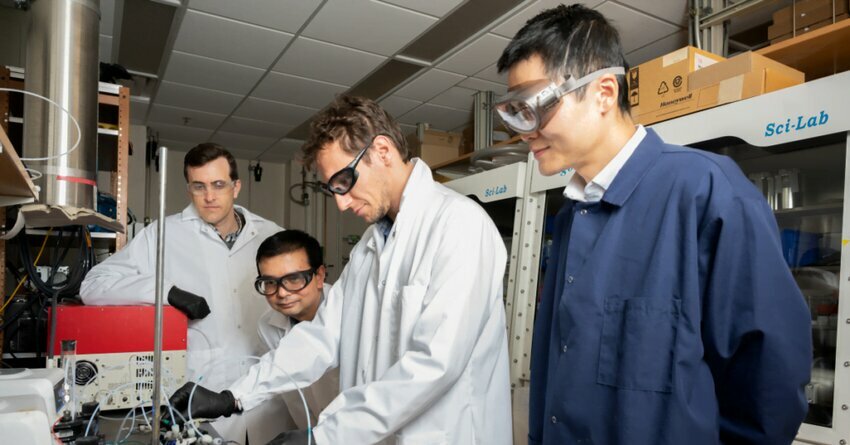
Recently, a team of researchers from the School of Chemical and Biomolecular Engineering (ChBE) at Georgia Tech announced an exciting development: a compact flow battery cell configuration that minimizes size by as much as 75%, in addition to decreasing costs significantly. This type of configuration has significant implications for many applications, as it drastically reduces the amount of space necessary for energy storage systems, making them easier and more cost-effective to utilize made possible through the use of sub-millimeter, bundled microtubular membranes that reduce the membrane-to-membrane distance by almost 100 times. With these smaller, more efficient cells in place, renewable energy sources such as wind and solar power could realistically be employed on larger scales in various industries.
The researchers tested four different chemistries; zinc iodide being the most energy dense for residential units and having fewer supply chain issues than lithium. The flow battery was also able to run for more than 220 hours or 2,500 cycles during off-peak conditions; potential to reduce costs from $800 to under $200 per kilowatt hour with recycled electrolyte.
The electrochemical solution for this unique shape of the flow battery proved more powerful than conventional planar cells. “The superior performance of the SMBT was also demonstrated by finite element analysis,” said Xing Xie, an assistant professor in the School of Civil and Environmental Engineering. “This simulation method will also be applied in our future study for cell performance optimization and scaling up.”
In order to make flow battery technology commercially viable, Georgia Tech's ChBE researchers have developed an automation process to manufacture hollow fiber modules at scale. This process allows them to scale up the batteries' size with hollow fiber modules with the intention to deploy in Georgia Tech's 1.4-megawatt microgrid in Tech Square, a project that tests microgrid integration into the power grid and offers a living laboratory for professors and students. This project will allow researchers and companies alike to test out their designs on a larger platform before commercializing them on the national and global levels.